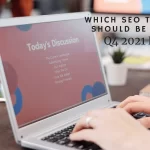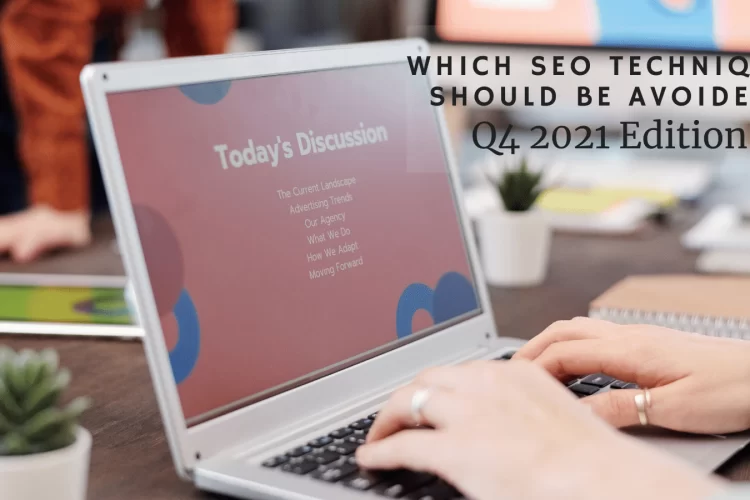
There are several ways to estimate where your media budget should go between Google Ads and Facebook Ads. Here is what to consider and calculate.
Businesses ask where they should invest their ad money when expanding their paid media presence,Where should I spend my ad money:
Google search or Facebook ads?
Another version of that question is: Which is better, Facebook Ads or Google Ads?
The truth is, there isn’t a “better” when it comes to comparing the two because they do things very differently.
The better questions are:
√. To what stages of the buyer journey am I aiming?
√. Which is a better fit for my budget?
√. Which one is a better fit for the product landscape I’m in?
Why is this topic so often discussed specifically about these two platforms, time after time? Simply put, it is because most Internet users are using these platforms, and both are proven performers.
What advertising channel should you choose between Facebook Ads and Google Ads (specifically, their search campaigns for this comparison) when you must choose between them?
Based on your situation, let’s evaluate.
Digital Advertising Budget & Acquisition Costs
Be very clear on your numbers before investing any money, understand what you can afford to pay for customers. If you don’t know this, you’ll lose a lot of money on any platform without knowing what to do with it.
This math does not work. Take a look at your full budget, and work from highest intent backwards: maximize your retargeting, and then move the leftover funds to higher in the funnel.This will ensure you’re getting the best return possible, and reinvesting further back in the customer journey.
Your Industry & Your Competition
First, learn more about your industry and the costs associated with it using Google’s Keyword Planner.
A lot of industries and sub-industries are extremely expensive from a cost-per-click perspective and ad budget perspective. For example, law-related keywords are very expensive.
If you are going after searches in that area but do not have an incredibly large budget, it might be time to rethink.
Even if you have a budget of $500/day, but your average cost per click is $200 (yes, they exist), you will only be able to afford 2 or 3 clicks a day. You’ll want to have hundreds (or hopefully thousands) of impressions to learn what keywords, ads, and landing pages are working for you.
This doesn’t mean that you shouldn’t use Google Ads, but you do need to understand that Facebook ads may offer a more affordable alternative with an extremely powerful targeting capability for many industries.
Another alternative is to limit the ad to people who have visited your site by utilizing the RLSA feature in Google Ads.
If this is an industry-restricted feature, though, you’ll still be able to highlight those prospects you want to reach when they search.
Defining Your Objective
Once you have determined what your organization has the budget to spend and you have looked at the industry and competitors, you should consider what you want to accomplish with this marketing strategy. If you want to increase brand awareness or generate demand, Facebook ads may be more affordable.
On the other hand, if you are looking to generate sales or leads (i.e., demand capture), then Google Ads might be a better choice for your business. In this scenario, a user searches for the services or products your business is offering. Therefore, you will be targeting people with a generally much higher intent to purchase.
Although you’ll still need to take into account your overall Google and Facebook ad spending, many times I’ve seen lower costs per conversion (cost per lead) with Facebook Ads.
A good way to measure the quality of the leads you are getting is to look at your cost per solid, qualified lead. It might cost twice as much on Google Ads, but do they convert at a higher rate?
If you are aiming at finding the most favorable path, be sure you are doing the math all the way through to your ultimate goal.
Stage in Buyer’s Journey
It is also important to understand where the buyer is in the buyer’s journey. This can help you identify which advertising channels to use. It may be that both platforms are a great fit, but just at different stages.
If you want to capture users who are looking for a product or service at the exact moment they are looking for it, Google Ads would be your best option since there is a very high level of intent from your audience.
On the other hand, if you’re trying to reach new customers with your brand, or if you’re seeking to influence ongoing consideration, then Facebook ads can help you target those with a current or unknown need for your product.
It is through this complementarity and growth that your digital marketing strategy and your organization can be fueled.
Product/Service Maturity & Overall Search Volume
Most businesses don’t pay enough attention to this area, but I find that it is often a good place to start.
It doesn’t make any sense to use Google search ads for a new product or service if there isn’t a lot of or any search volume.
Uber is a good example. Some years ago, the term “rideshare” didn’t even exist, so people didn’t search for it. Services like Uber and Lyft disrupted an industry in which nobody was searching for it yet.
The taxis filled a huge need, but it wasn’t a problem users sought solutions for – they were just taxis, and that was that.
You should consider this before completely ruling out Google Ads in this scenario. Instead of just focusing on the keywords that describe what your product does, consider the pain points it addresses.
For example, Tile was described as a “Bluetooth tracker,” which was one of the first of its kind. Nobody had searched for “bluetooth tracker” yet.
But users were searching for solutions, such as “find your wallet,” “find your keys,” or “find your phone.”
These phrases speak to a pain point and positioning Tile with ad copy that speaks to how it solves that pain point would create more volume than simply using the technical name of the product.
You may not be able to use your budget at that rate, but if you are developing an Uber-like product with a unique solution to a problem people simply accept or don’t seek answers to, Facebook ads are a great place to start.
Instead of focusing on user intent, you can focus on demographics and interests to introduce your offer to the right consumers.
Demographic-Sensitive Product or Service
Accordingly, if your product or service is strongly correlated with specific life events, Facebook may be a better choice if these events are based on audience segments.
Facebook’s powerful targeting capabilities include the ability to target based on life-changing events.
Although Google lets you target life events, you are still targeting people who are searching for those terms.
If it isn’t a widely searched term, demographic targeting won’t help you in Google Ads.
Brand Recognition
In relation to the point above, but not nearly as important as some other factors.
Even if you do everything you can to build brand awareness, a new company is likely to be less successful in search than a mature, established company in your industry.
Why?
You will find that your competitors have more brand recognition and brand loyalty.
Users viewing your ad (a company they are not familiar with) and your competitor’s ad (which they are familiar with) will most likely see more success (i.e., higher click-through rate) in your competitor’s paid advertising.
Consider your company’s position in the marketplace.
Your first step may be to build your brand’s reputation and recognition through Facebook ads and other social media channels, before moving to Google Ads to increase your chances of success.
Conclusion
Here’s a quick overview of Google Ads vs. Facebook ads and the pros and cons of both.
Determine the budget for acquiring customers.
If you work in a highly search-intensive industry, you should consider that.
Find out the CPC ranges you’ll be looking at in Google Ads by doing keyword research.
Find out what your budget will allow you to do based on different scenarios.
You have to test, test, and test some more to determine what is right for you.




